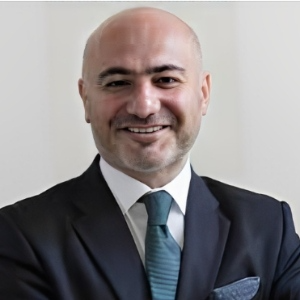Robert J Chilton, University of Texas Health Science Center San Antonio, United States
Finerenone is a non-steroidal mineralocorticoid receptor antagonist (MRA) designed to manage heart failure, especially in patients with chronic kidney disease (CKD) and type 2 diabetes. Heart failure and CKD frequently co-exist, and the combination poses a particularly high cardi [....] » Read More
































Title : Novel important cellular responses, signaling mechanisms and therapeutic options for pulmonary hypertension and right heart failure
Yong Xiao Wang, Albany Medical Center, United States
As a common and devastating lung disease, pulmonary hypertension (PH) has a significant rate of both morbidity and death mortality. The current primary interventions for this disease are to use non-specific vasodilators, but patients do not always respond well to these non-specif [....] » Read More
Title : Preventing sports-related cardiac arrest: Coronary artery calcium scoring stratifies the benefit of low-dose aspirin use for risk reduction
Arthur J Siegel, Massachusetts General Hospital, United States
While habitual endurance exercise such as training for a marathon is quintessentially cardioprotective, running such a race paradoxically confers a transiently increased risk for cardiac arrest and sudden death. The frequency of such events increased significantly in United State [....] » Read More
Title : TED2HOME - A low cost automatic external defibrillator for home/office
Abraham Teddy Weiss, Hadassah University Hospital, Israel
Sudden cardiac death (SCD)-caused by ventricular fibrillation (VF) or standstill-is one of the biggest unmet need in public health: it is unpredictable and occurs in about 1000 persons/day in US and Europe alone with very poor survival. Since survival drops by 10% for every minut [....] » Read More
Title : The low grade chronic inflammation and atherosclerosis
Sekib Sokolovic, Sarajevo University Clinical Center, Bosnia and Herzegowina
Introduction: The low grade chronic inflammation (LCGI) is response to the underlying disorders, injuries, antigen and is result of the failure to acute infection, viruses, tuberculosis, protozoa, fungal and foreign material. The risk factor of LCGI are smoking, obesity, hi [....] » Read More
Title : The development of human relaxin-2 for heart failure with preserved ejection fraction, HFpEF
Thomas Bernd Dschietzig, Relaxera GmbH & Co. KG, Germany
Human relaxin-2 (hRlx-2) is a hormone of pregnancy that has engendered a great deal of interest as a therapy for various cardiovascular and inflammatory diseases, among them Acute Heart Failure and Systemic Scleroderma. Here, we propose and summarize data showing that Rlx-2 repre [....] » Read More
Title : Empathy and precision: Revolutionizing communication between cardiologists and patients
Iris Panagiota Efthymiou, University of Greenwich, United Kingdom
Effective communication is critical in cardiology, where the stakes often involve life-altering decisions. This presentation explores the intersection of empathy and precision in communication, emphasizing the cardiologist’s role in fostering trust, understanding, and patie [....] » Read More
Title : Ex-situ organ perfusion and cardiac performance improvement
Y J H J Taverne, Erasmus University Medical Center, Netherlands
Cardiac transplantation remains the golden standard for patients with end-stage heart failure when therapeutic approaches and interventions fail to reverse HF progression. Traditionally, hearts are transplanted from brain-death (DBD) donors where the heart is beating at time of p [....] » Read More
Title : Personalized and Precision Medicine (PPM) as a unique healthcare model through biodesign-driven and inspired biotech, translational applications and cardiology-related marketing to secure the human healthcare, wellness and biosafety
Sergey Suchkov, R&D Director of the National Center for Human Photosynthesis, Mexico
A new systems approach to diseased states and wellness result in a new branch in the healthcare services, namely, Personalized and Precision Medicine (PPM). To achieve the implementation of PPM concept, it is necessary to create a fundamentally new strategy based upon the recogni [....] » Read More
Title : Use of mitochondrial ROS inhibitor to protect coronary microvascular/endothelial function
Jun Feng, Alpert Medical School of Brown University, United States
Cardioplegic ischemia/reperfusion (I/R), hypoxia/re-oxygenation (H/R) and diabetes mellitus (DM) are associated with increased oxidative stress which contribute to coronary microvascular/endothelial dysfunction. Mitochondrial reactive oxidative species (mROS), a major source of R [....] » Read More
Title : VE ECMO as a bridge to OHT in the sickest of the sick cardiogenic shock patients
Peter Barrett, Piedmont Heart Institute, United States
To show the utility and benefit of VA-ECMO support in adults as a bridge to cardiac transplantation in the sickest of the sick cardiogenic shock patient population. VA-ECMO as bridge to LVAD or HT has significantly increased last 10-years. This approach has been controversial giv [....] » Read More
Title : Heart of stone: A rare case of incidentally detected endocardial calcification
Vaibhav Sharma, St. Louis Heart and Vascular, United States
Background: Endocardial calcification is a rare cardiac condition with limited documented cases, particularly in non-tropical regions. This case report explores an unusual presentation of incidental endomyocardial calcification in a patient without typical predisposing systemic d [....] » Read More
Title : Green alert: Myocardial infarction triggered by marijuana use
Vaibhav Sharma, St. Louis Heart and Vascular, United States
Background: The cardiovascular implications of marijuana use have gained increasing attention in recent medical literature. While chronic cannabis consumption has been linked to various cardiovascular events, comprehensive documentation of acute myocardial infarction in young adu [....] » Read More
Title : Myocarditis in desmoplakin cardiomyopathy: A misdiagnosed entity or a distinct phenotype?
Natasha Ghalib, Case Western Reserve University, United States
Background: Desmoplakin (DSP) cardiomyopathy is a distinct form of arrhythmogenic cardiomyopathy (ACM), often presenting with left-dominant or biventricular involvement. A subset of these patients exhibits a myocarditis-like phenotype, characterized by acute chest pain, troponin [....] » Read More
Title : Requirement of serial high-sensitivity troponin assays in low-risk patients for ACS with non-ischaemic ECG changes: Are we compliant with the recent guidelines?
Abhishek Dey, Northampton General Hospital, United Kingdom
Background: The leading symptom triggering the evaluation cascade in patients with suspected Acute Coronary Syndrome (ACS) is acute chest pain. An accurate clinical history, serial electrocardiograms (ECG) and high sensitivity Troponin assays are the cornerstones of prompt and ac [....] » Read More
Title : A single-centre study for assessing and improving appropriateness of rejected transthoracic echocardiography requests and correlation with British Society of Echocardiography published clinical indications
Abhishek Dey, Northampton General Hospital, United Kingdom
Introduction: Transthoracic echocardiography (TTE) is an indispensable non-invasive cardiac imaging modality that is widely utilised forming a crucial part of patients’ care pathway throughout clinical practice. The rising prevalence of cardiovascular diseases has resulted [....] » Read More
Title : Auditory disturbances and childhood vasovagal syncope
Mariana Otero, Queen Mary University of London, United Kingdom
Objective: Literature on auditory disturbance and vasovagal syncope is sparse. Hence, our aim was to examine the auditory disturbances (ADS) during attacks of vasovagal syncope among healthy children and adolescents. Methods: In this retrospective observational hospital-based [....] » Read More
Title : Minimal invasive pediatric and adult congenital cardiac surgery
Y J H J Taverne, Erasmus University Medical Center, Netherlands
Full midline sternotomy remains the most common incision to correct congenital cardiac defects. Although many minimal invasive programs exist for the adult population worldwide, only a few centers have adopted such a program for the pediatric population. The rise of novel interve [....] » Read More
Title : Miniaturized living myocardial slices derived from pediatric tetralogy of fallot specimens: A novel platform for investigating contractile performance and pharmacological interventions
Ziyu Zhou, Erasmus University Medical Center, Netherlands
Congenital heart disease (CHD) continues to pose significant challenges in paediatric cardiology, and Tetralogy of Fallot (ToF) stands out as a condition in need of improved translational models. Traditional in vitro and animal-based systems provide valuable insights but often fa [....] » Read More
Title : The promising future of the unique translational tool to manage self-renewal of cardiac cells and to support regeneration in the post-infarction period
Sergey Suchkov, R&D Director of the National Center for Human Photosynthesis, Mexico
The approaches securing cardiac regeneration in post-infarction period are not available to be practiced. The key problem is the identity of cells be born to generate functionally active cardiac myocytes replenishing those being lost during ischemia. With identification of reside [....] » Read More
Title : Multiple cerebral infarcts caused by left ventricular thrombus: A multidisciplinary challenge
Sara Ismail Abdelhalim Ismail, Al-Sabah Hospital-Medical, Kuwait
Introduction: Left ventricular (LV) thrombus accounts for up to 10% of cardioembolic strokes. It is frequently observed in patients with a history of myocardial infarction, particularly those with anterior STEMI, reduced left ventricular ejection fraction (LVEF), non-ischemic car [....] » Read More
Title : Microbial diversity drives metabolic alterations and disrupts functional pathways in acute myocardial infarction: Evidence from three distinct microbiotic compartments
Ikram Khan, Lanzhou University, China
Our study investigates the interplay between the microbiome and metabolome in acute myocardial infarction (AMI), focusing on the diagnostic potential of blood, gut, and oral microbiota and their metabolomic signatures. Blood, fecal, and saliva samples from AMI patients and health [....] » Read More
Title : Resource utilization and outcomes in surgical turndown patients undergoing either orbital or rotational atherectomy
Hassan Saleh, NewYork-Presbyterian Hospital / Weill Cornell Medical Center, United States
Patients with surgical anatomy turned down for coronary artery bypass surgery often have complex disease and high-risk features. We identified all patients who underwent either orbital (OA) or rotational atherectomy (RA) at our institution between January 2021 and December 2024, [....] » Read More
Title : Seizure-like episode unmasking torsade’s de pointes: A rare presentation of an arrhythmic emergency
Kanchan Kanchan, Birmingham Heartlands Hospital, United Kingdom
We present the case of a 40-year-old male who experienced a seizure-like episode, later diagnosed as torsade's de pointes (TDP), highlighting the diagnostic and management challenges of this atypical presentation. The episode characterized by generalized shaking without tongu [....] » Read More
Title : Left atrioventricular coupling index as a novel prognostic marker of adverse events in heart transplant patients
Chun Wu, Huazhong University of Science and Technology, China
Purpose: Decreased diastolic(DD) function may be one of the early manifestations of acute rejection after heart transplantation. Left atrioventricular coupling index (LACl) is associated with DD severity. The purpose of this study was to investigate the novel prognostic value of [....] » Read More
Title : The impact of platelet/lymphocyte ratio and white blood cell/lymphocyte ratio on the prognosis of patients with acute ST segment elevation myocardial infarction undergoing PCI during hospitalization
Yanmin Xu, Tianjin Medical University Second Hospital, China
Objective: The platelet-to-lymphocyte ratio (PLR) and white blood cell to lymphocyte ratio (WLR) are potential markers of inflammation. This study aimed to investigate the relationship between PLR, WLR, and the risk of major adverse cardiovascular events (MACE) in patients w [....] » Read More
Title : A rare and fatal complication of dengue fever: Spontaneous coronary artery dissection
Umar badshah, Saidu Teaching Hospital, Pakistan
Dengue fever, a tropical disease characterized by fever, haemorrhagic manifestations, and organ impairment, can have rare and fatal complications. We report a case of spontaneous coronary artery dissection (SCAD), a rare but potentially fatal complication of Dengue fever. We repo [....] » Read More
Title : The cardiac myxoma surgery 08 cases operated in Mali
Modibo Doumbia, Chu Mere-Enfant ''Le Luxembourg'', Mali
Introduction: Cardiac myxoma is a rare tumor that represents only 0.25% of primary cardiac tumors and the most common in adults [1]. Nearly 75% of these tumors are located in the left atrium [2,3]. The symptoms and symptoms are disparate and depend mainly on the location of [....] » Read More
Title : Indications and results of cardiac surgery: 5 years of practical experience and prospects in Mali
Modibo Doumbia, Chu Mere-Enfant ''Le Luxembourg'', Mali
Introduction: The André FESTOC Center is a new cardiac surgery service offered by the French humanitarian association Chain of Hope. 4000 patients are waiting for heart surgery. The Festoc Center is a response to this demand for cardiac surgical care in Mali and the sub-re [....] » Read More
Title : Caught in a red and blue squeeze: A plaque-free coronary crisis
Zoya Khan, Lakeland Regional Health, United States
Introduction: Anomalous origin of the right coronary artery (RCA) is a rare congenital condition, accounting for less than 1% of coronary anomalies. While many patients are asymptomatic, the anomalous course can lead to myocardial ischemia through external compression rather than [....] » Read More
Title : Hypoxemia beyond the heart: A case of hepatopulmonary syndrome masquerading as cardiac dyspnea
Marium Ahmed, NewYork-Presbyterian Queens, United States
Hepatopulmonary syndrome (HPS) is a serious pulmonary vascular complication associated with chronic liver disease, portal hypertension, or congenital portosystemic shunts. It is characterized by a triad of liver disease, intrapulmonary vascular dilatation, and arterial hypoxemia. [....] » Read More
Title : A waiting game: The risky business of repairing a friable septum
Michael Sabina, Lakeland Regional Health Medical Center, United States
This presentation will focus on the critical and complex decision-making process involved in managing ventricular septal defects (VSDs) that develop after myocardial infarction (MI). Although VSDs following MI are rare, they represent a life-threatening complication with a high m [....] » Read More
Title : Hidradenitis suppurativa in cardiac transplant recipients: Implications of immunosuppression on disease activity and clinical outcomes
Natasha Ghalib, Case Western Reserve University, United States
Background: Hidradenitis suppurativa (HS) is a chronic, relapsing inflammatory skin disease affecting apocrine gland-bearing regions and characterized by painful nodules, abscesses, and sinus tract formation. Although traditionally considered a dermatologic condition, emerging ev [....] » Read More
Title : Epoprostenol infusion in pulmonary hypertension: A case of mechanical complication and management
Ali Elshamy, Northampton General Hospital, United Kingdom
Introduction: Pulmonary hypertension is a chronic progressive disease characterized by raised pulmonary vascular resistance ultimately leading to right sided heart failure. Amongst the current available options for treatment, Epoprostenol has been widely proven to improve sy [....] » Read More
Title : Changes on sleep quality after treatment of mandibular advance device for sleep apnea: 24-hour holter-based cardiopulmonary coupling analysis
Jin Oh Na, Korea University Guro Hospital, Korea, Republic of
Background: The purpose of this study is to report the treatment effects of mandibular advance device (MAD) on patients with sleep apnea based on cardiopulmonary coupling (CPC) analysis. Method: Patients with mild to moderate obstructive sleep apnea were enrolled in a prospect [....] » Read More
Title : Transient ST-elevation MI diagnosed by holter monitoring
Nabihah Hussaini, University Hospital Lewisham, United Kingdom
Presentation: A 54-year-old woman was referred with an 8-week history of pressure sensations over the chest and epigastrium unrelated to exertion. She presented to the Emergency Department 4 weeks prior but self-discharged against medical advice due to the long wait time. Diag [....] » Read More
Title : Immediate recoil after percutaneous balloon angioplasty of below the knee arteries in patients with critical limb ischemia
Farrukh Malik, National institute of cardiovascular diseases, Pakistan
Introduction: Chronic limb ischemia (CLI), the terminal manifestation of peripheral artery disease, has an estimated prevalence of 6.5 million in the United States and Japan, with an annual incidence of 2.3% per year. Patients diagnosed with CLI have a 1-year mortality rate of ap [....] » Read More
Title : Cannabis abuse and ST segment elevation ACS
Farrukh Malik, National institute of cardiovascular diseases, Pakistan
Introduction: Coronary artery disease (CAD) is primarily influenced by modifiable risk factors including smoking. Smoking Cannabis is one of the most widely used illicit substances worldwide, which is on the rise due to legalization in different parts of the world, and it ha [....] » Read More